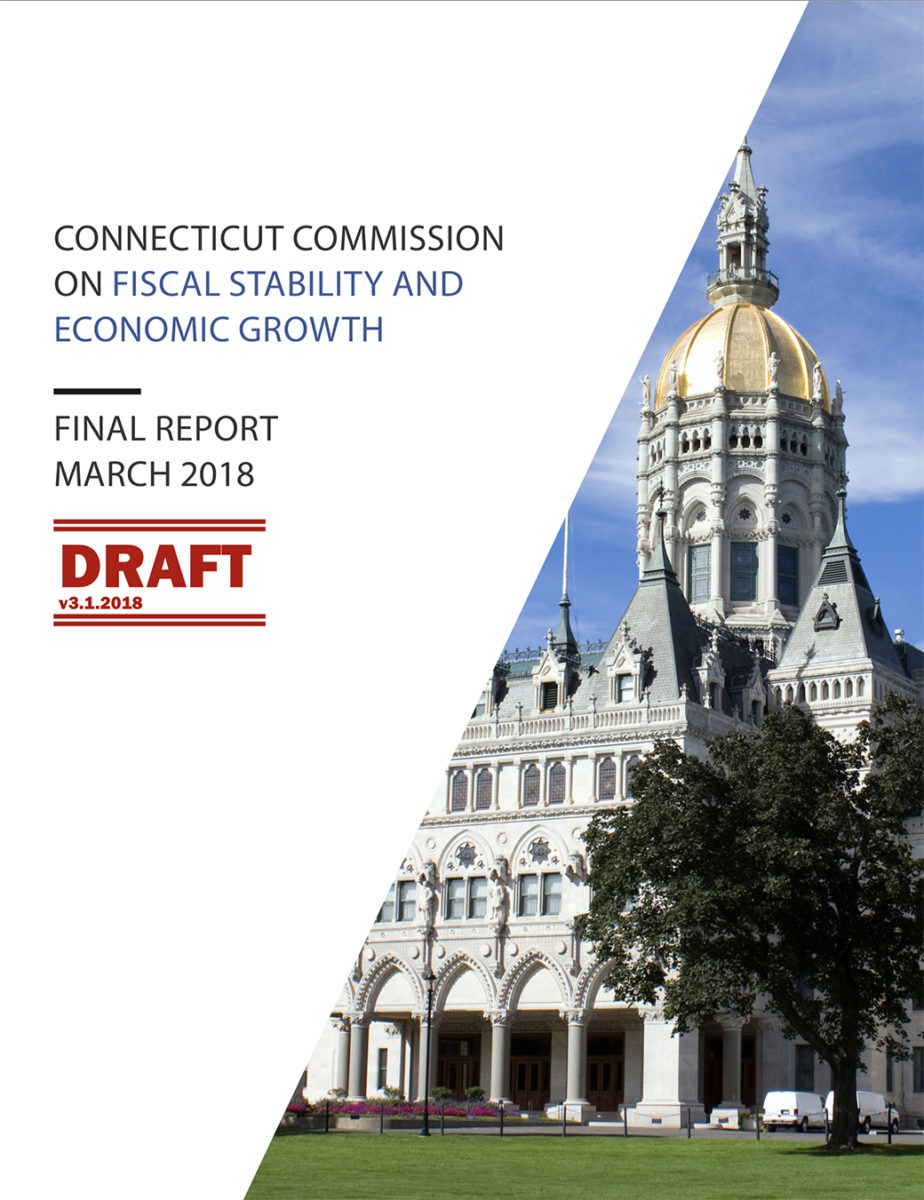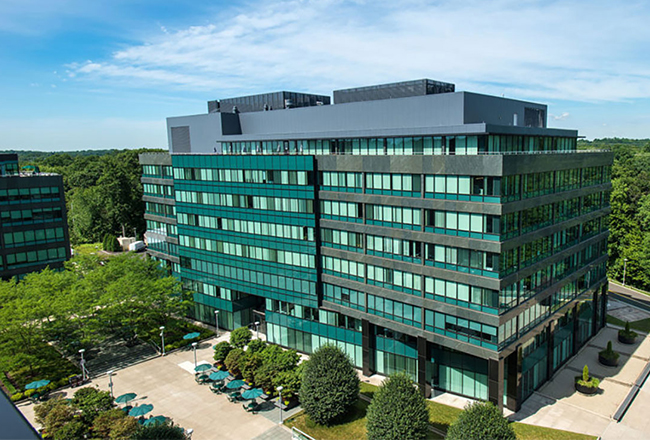Lower income taxes, higher sales taxes and fees and major changes in how the state spends money are among the recommendations delivered on March 1 by the Connecticut Commission on Fiscal Stability and Economic Growth.
The commission’s report also advocates raising the minimum wage to $15 an hour by 2022, tightening union bargaining rules and cutting state spending by $1 billion a year while adding spending in cities and on transportation.
 The report recommends decreasing the income tax by 18 percent for the top bracket and similar or greater amounts in lower brackets. In exchange, the sales tax would go from 6.35 percent to 7.25 percent. Municipalities would have the authority to levy a 0.5 percent sales tax. Estate and gift taxes would be eliminated.
The report recommends decreasing the income tax by 18 percent for the top bracket and similar or greater amounts in lower brackets. In exchange, the sales tax would go from 6.35 percent to 7.25 percent. Municipalities would have the authority to levy a 0.5 percent sales tax. Estate and gift taxes would be eliminated.
For businesses, a tiered payroll tax would have the largest companies paying a 0.8 percent tax. Under the report”™s math, a company”™s first nine employees would not be counted and a credit would cover half the tax for the next 10 through 99 employees.
The commission, which was made up of a cross-section of business people including Cindi Bigelow, president and CEO of Bigelow Tea in Fairfield, also urged the legislature to pass a 7-cent gas tax increase over a period of four years.
The commission further recommended that the legislature set retiree and health benefit formulas for state employees when the current State Employees Bargaining Agent Coalition (SEBAC) contract ”“ which provides for collective bargaining ”“ expires in 2027. It also seeks to allow towns to use nonunion labor on projects under $1 million.
The report also advises coming up with $1 billion in cost reductions annually through the executive branch. Part of that could be accomplished by creating one budget committee in the legislature instead of separate committees for taxing and spending, the report said.
Gov. Dannel Malloy, who created the commission, thanked its 14 members for the “great deal of thought and effort” that went into the proposal”™s development. “This commission”™s report presents Connecticut with an opportune moment to engage in a meaningful conversation about bold ideas for growing our economy and building stronger communities where people want to live and work ”“ now and into the future,” he said.
“We look forward to reviewing this report and to giving their proposals the careful consideration that they are due,” Malloy said.
Chris Bruhl, president and CEO of The Business Council of Fairfield County, said the report was “significant in its scope and in its seriousness of purpose. (The commission”™s) definition of the issues was thoughtful and powerful, and the solutions are, on a broad basis, sweeping.”
He said that the report”™s recommendations were each “a strategic statement, not just a philosophical view about taxes or cities. Each one of them is a piece of a strategic puzzle.”
Bruhl urged legislators to consider the report”™s suggestions seriously, adding that the business council would continue to examine its particulars and make sure its voice was heard going forward.
“Not all solutions can wait for action,” he said. “We will continue to offer our own solutions, which we believe can be so important to the state”™s economy.”
Joseph Brennan, president and CEO of the Connecticut Business & Industry Association, also praised the commission”™s work but said there was plenty yet to be done ”“ such as fully digesting the report”™s 68 pages.
“We need to take a really hard look at this,” Brennan said. “We haven”™t seen any economic analysis of it yet, beside analysis by the commission itself.”
Brennan said several CBIA members had voiced concerns about the proposal”™s tax increases being “very detailed and spelled out, but the spending cuts are not detailed at all ”“ it just says that the governor should cut $1 billion in operational costs.
“We”™ve heard talk of ”˜shared sacrifice”™ before,” he added. “But does that mean we”™re going to go through tax increases and never see those spending cuts?”
The full report can be viewed here.






















